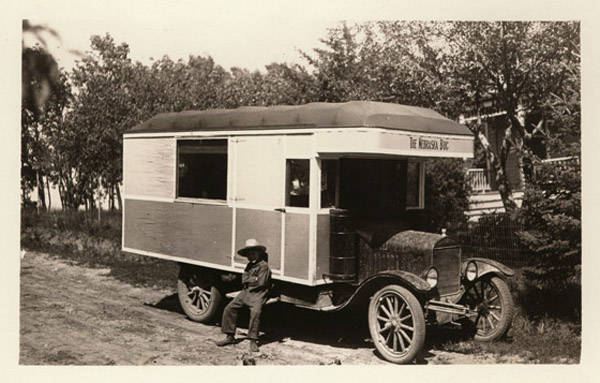 John Nelson’s photograph depicted a homemade auto camper (left). NSHS RG3542-124-01
John Nelson’s photograph depicted a homemade auto camper (left). NSHS RG3542-124-01
Long distance travel in the early days of the automobile was difficult, and comforts along the way were few. Motorists pitched their own tents and cooked their own meals in the auto tourist camps that soon sprang up along the nation’s roads. Some were free; others were operated by a commercial businessman. Pay camps, with more conveniences, soon became common.
The advantages and disadvantages of the free auto camp to its sponsoring town were discussed by the magazine Trade Exhibit (Omaha) on October 1, 1926: “There is a great difference of opinion about the merits of the free camp. Some towns have gotten away from it, claiming that it brought motor tramps who hung around, in some cases even living on the town. . . . If the town feels that the benefits derived offset the expense and the undesirable features, then it undoubtedly pays to continue the free camp.”
The Trade Exhibit closed its article on the free auto camp with a humorous poem skewering the typical “Flivver Hobo.” Read the poem and another Publication column on the automobile culture which grew up along Nebraska’s roads after 1900 as automobile ownership and travel became more widespread.
— Patricia C. Gaster, Assistant Editor for Research and Publications
(Updated 8/14/2023)



